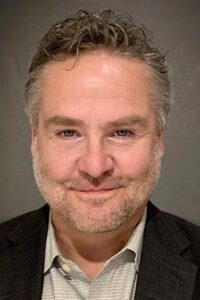Peter Loewen
Peter Loewen

Assistant Professor at the FoPS at UBC
Profile submitted by: Erica Wang
Brief description of role or responsibilities
Peter Loewen needs no introduction.
As an Assistant Professor at the FoPS at UBC, the David H MacDonald Professor in Clinical Pharmacy, a faculty member with Collaboration for Outcomes Research and Evaluation, and a researcher with Centre for Cardiovascular Innovation.
Describe how the individual or team made a positive contribution to patient care or their pharmacy department:
Peter Loewen needs no introduction. As an Assistant Professor at the FoPS at UBC, the David H MacDonald Professor in Clinical Pharmacy, a faculty member with Collaboration for Outcomes Research and Evaluation, and a researcher with Centre for Cardiovascular Innovation, he was and is a lot of things to a lot of people. However, as my advisor in PharmD school, he forever changed the trajectory of my career – let me tell you my story.
The first time I heard Peter’s name was during residency. I was on my family medicine rotation at the Royal Alexandra Hospital in Edmonton, and Katie Lee, my preceptor, came around the corner, with the most recently printed issue of CJHP in her hand. “Hey look!” She says: “Another interesting article from Peter Loewen.” I glance up and see the title: Reasons for Non-Use of Proven Interventions for Hospital Inpatients: Pharmacists’ Perspectives. Naive and impressionable, I was in awe that someone dared publish something as bold as this (sidebar: Arden Barry was actually first author on that article).
The first time I met Peter was a few months later during my UBC PharmD interview. Peter sat directly across from me and he mostly looked down at his iPad, or looked up occasionally, seemingly unimpressed. The question of why I wanted to pursue my PharmD arose. “So I don’t end up like one of those pharmacists you wrote about, Dr. Loewen – those who have all sorts of reasons to not perform evidence-based interventions.” I said. This time, he looked up, his eyebrow raised, and he looked mildly amused. I suppose that answer was sufficient.
The first time I had an opportunity to learn from Peter was when I chose him as my advisor in PharmD school. During seminar preparation, I learned that I do not need to format my presentations the same as others, but the changes needed to be spectacularly intuitive. As the chair of the UBC ethics board, he helped me unearth a deep vault of biases and conflict I didn’t even know existed within myself. His passion for cardiology was evident, although his therapeutics lectures initially brought forth emotions of frustration. Why did his exam questions always require long one-page explanations? I eventually came to appreciate that real clinical practice is indeed just a blank piece of paper, waiting for an eloquent assessment and explanation of various permutations of alternatives before handing over the best one as the recommendation to the team. Despite his generally unreadable exterior, he genuinely cares about his patients, students/residents, advancing the profession, and pushing the frontiers of clinical practice. He was consistent in demonstrating this in all his endeavors, like advocating for access to diagnostics for pharmacists at VGH, creating the layers of love philosophy within the LMPS residency program, and publishing on novel and interesting topics. He inspired me to spend time making things that were useful, like his webpage, one-pagers, and decision tools for patients. I even learned some fun things from him like how to make people nervous during question period.
During one of our first meetings, I decided to ask him a question that had haunted me throughout my residency: What is wrong with being quiet? Having grown up pensive and obedient, I assumed that same role in residency – listening intently, with a forever stoic facial expression, and never talking back. The extroverted preceptors barreled over me in rounds, hijacked my recommendations, and assumed I was not prepared. The observant preceptors let me be myself after they realized that I was not bored and that I was just thinking. Peter laughed at my indignation: “There is nothing wrong with being quiet, except you would never want someone to say: ‘Erica – she’s good, but she’s quiet.’” Peter’s candor inspired me to not just be myself, but to be a better version of myself.
I took all of these lessons from Peter to heart – practicing, stumbling, recalibrating, refining. He inspired me to practice to full scope, think outside of the box, challenge the status quo, and to be kind amongst it all. I hope that you will, one day too, encounter a mentor as influential as Peter was to me. Or perhaps an even more altruistic hope – May you be a Peter to someone, someday.
CSHPBC LetsTalkPharmacy PAM2023 PatientCenteredCare PharmacyAppreciationMonth PharmacyMentorSpotlight